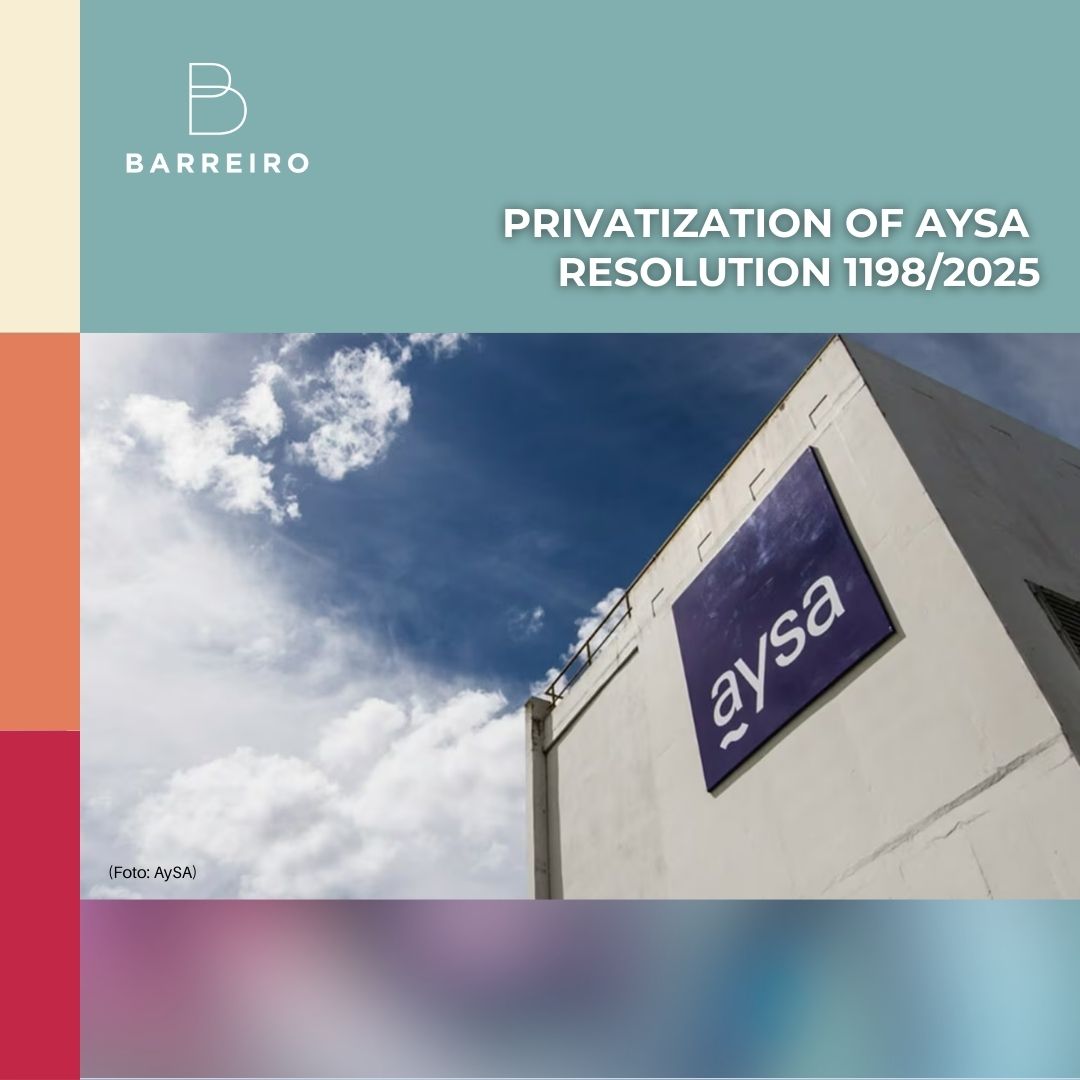Privatization of AySA: Key Points of Resolution 1198/2025

Analysis of Resolution 1198/2025 of the Ministry of Economy
Regulatory Framework
It is based on Law 27,742 (which authorizes the privatization of state-owned companies) and Law 23,696 on State Reform, together with regulatory decrees 644/2024, 695/2024, and 494/2025.
The resolution forms part of the State’s divestment plan in public companies, specifically Agua y Saneamientos Argentinos S.A. (AySA).
Main Purpose
-
The resolution formally initiates the process of privatizing AySA, providing for the sale of 90% of the shares held by the State.
-
At least 51% of the shares must be transferred to a strategic operator through a national and international public tender.
-
The remaining shares will be sold on local stock exchanges and markets.
Valuation Mechanism
-
The National Appraisal Tribunal declared its inability to carry out the valuation within a reasonable timeframe.
-
Consequently, a national public sector banking entity must be contracted to conduct the valuation, which will serve as the official budget.
Continuity Guarantees
-
The Secretariat of Public Works is instructed to ensure that privatization does not affect the continuity of the essential public service of drinking water and sanitation.
-
It must also prepare the bidding and contractual documentation, including the concession contract.
Deadlines and Procedure
-
The sale process must be completed within 8 months from the entry into force of the resolution.
-
The bidding process must be conducted through the CONTRAT.AR platform, a digital and centralized mechanism to ensure transparency.
Key Actors in Implementation
-
Temporary Special Executing Unit “Agency for the Transformation of Public Companies” → coordinates valuation, bidding, and sale.
-
Secretariat of Public Works → prepares technical and contractual documents, and ensures service continuity.
-
Ministry of Economy → enforcement authority and overall supervision.
Final Assessment
Resolution 1198/2025 represents the effective starting point for the full privatization of AySA, following the provisions previously established by law and decrees. The National State transfers the management of an essential public service to private capital through a mixed scheme: a strategic operator with majority control and the capital market for the remaining shares.
Although the resolution establishes control mechanisms (official valuation, defined deadlines, service continuity guarantees, and the use of the CONTRAT.AR platform), the decision entails a profound structural change in the provision of water and sanitation in the Buenos Aires Metropolitan Area (AMBA), with significant economic, social, and regulatory consequences. The success of the process will depend on striking a balance between attracting private investment, ensuring transparency, and protecting users of this essential public service.